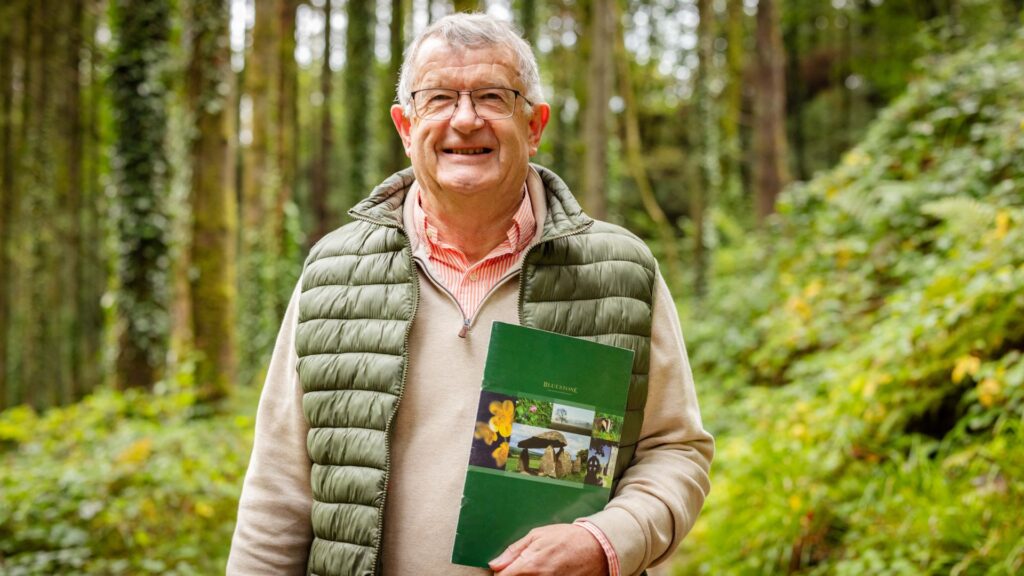Biodiversity at Bluestone: A Blueprint for Regenerative Tourism

Written by William McNamara OBE, founder and CEO of Bluestone National Park Resort.
True success in the tourism industry must go hand in hand with preserving and enhancing the natural environment.
As a dairy farmer, raised in rural Pembrokeshire, a deep reverence for the land, nurturing and respecting its resources has always been front and centre in my world. Today, the wellbeing of people and planet continue to underpin the direction for Bluestone, a five-star holiday resort nestled within the Pembrokeshire Coast National Park. Bluestone is a living example of actively contributing to the regeneration of the environment, which I believe serves as a blueprint for other businesses looking to make positive change.
Unlike other holiday parks that find an area of natural beauty, build on it, then seek to sustain it, we’ve transformed barren land into a thriving tapestry of ecosystems, set to achieve a biodiversity net gain of fifty percent, which is on a par with Wildlife Trust levels. At the same time we’ve successfully built a business that employs 900 local people and welcomes thousands of families every year to reconnect in our lush countryside, proof that -nature and commerce can be symbiotic.
Back in 2004, which unbeknownst to me was the same year the UN coined the term ESG – long before this acronym was part of business language and a mainstream priority – I laid out my vision for what could be achieved on dairy farmland. Many questioned the viability of the ideas in my ‘Green Book’ at the time. It focused not only on building a holiday resort, but on transforming the entire concept of tourism, driven by the belief that Bluestone could be a force for good in terms of the environment, the local economy and local communities; the three pillars of sustainable development.
Environmental scientist Marten Lewis, our Director of Sustainability, leads on implementing and exceeding my early visions for Bluestone, which today operates beyond the realms of sustainable tourism as a best-in-class model of regenerative tourism. Bluestone’s impact goes far beyond our land. The air quality on our resort is among the cleanest in the UK, and we monitor particulate matter (PM2.5) to ensure a healthy environment for both people and wildlife. Our broader environmental strategy includes transitioning to BioLPG, recently opening a five-hectare solar farm on-site, and planting of over 60 acres of native woodland to lock away carbon. Together, these initiatives are helping us reduce our carbon footprint while creating a welcoming space for our guests who share our values to enjoy.
Committed to reducing waste, conserving resources, and contributing to a circular economy throughout the resort and beyond, Bluestone was the first business in the world to recycle disposable nappies as the technology emerged in 2017. We stopped selling bottled water, providing refill stations instead, in 2021, are a best practice private sector example for the Chartered Institute of Waste Managers, and a case study for Welsh Government workplace recycling legislation in 2023. We have the first and biggest waterpark in the world to be heated with locally sourced biomass; our staff own thirty percent of the business; we collaborate with our suppliers on their carbon life cycle analyses; and have a charitable fund. Tourism can, and should, give back to both the environment and the community.
As the climate and nature crises escalate, it has never been clearer that sustainable practices are essential. Bluestone serves as a case study or blueprint for other businesses, local authorities, and landowners to look to. By adopting Bluestone’s operational model, landscapes can be transformed into vibrant, biodiverse ecosystems that support local economies, enrich lives, and protect our planet for future generations.




